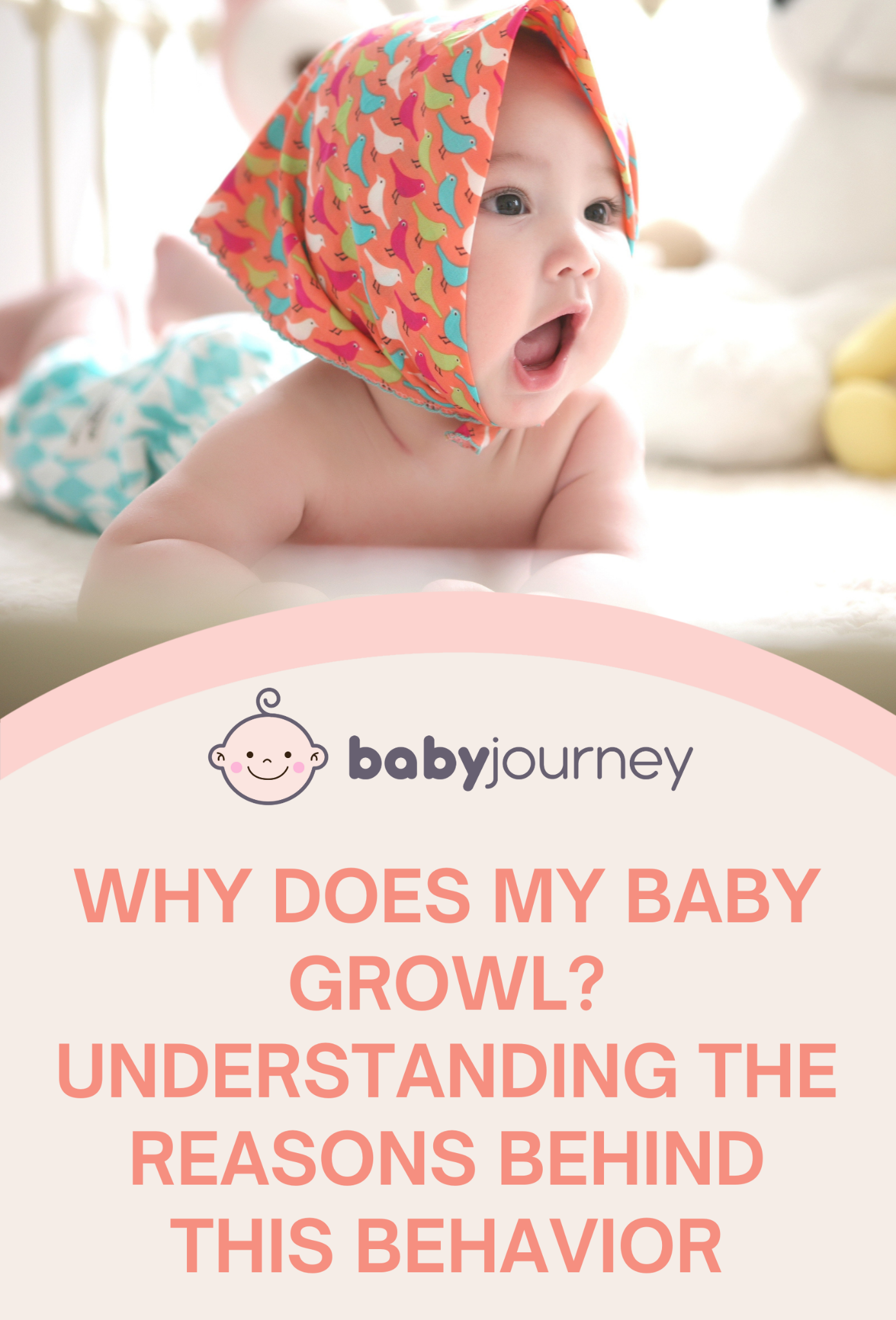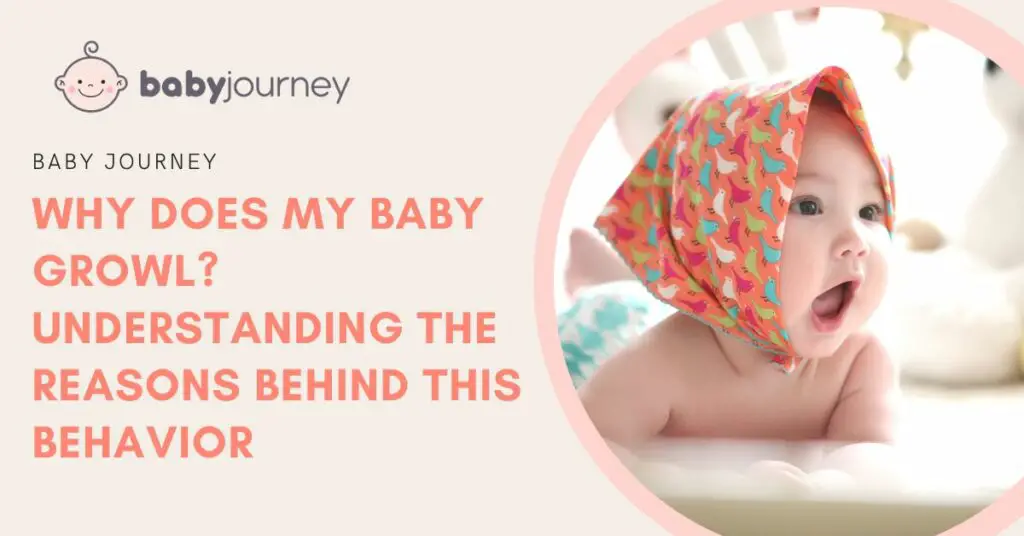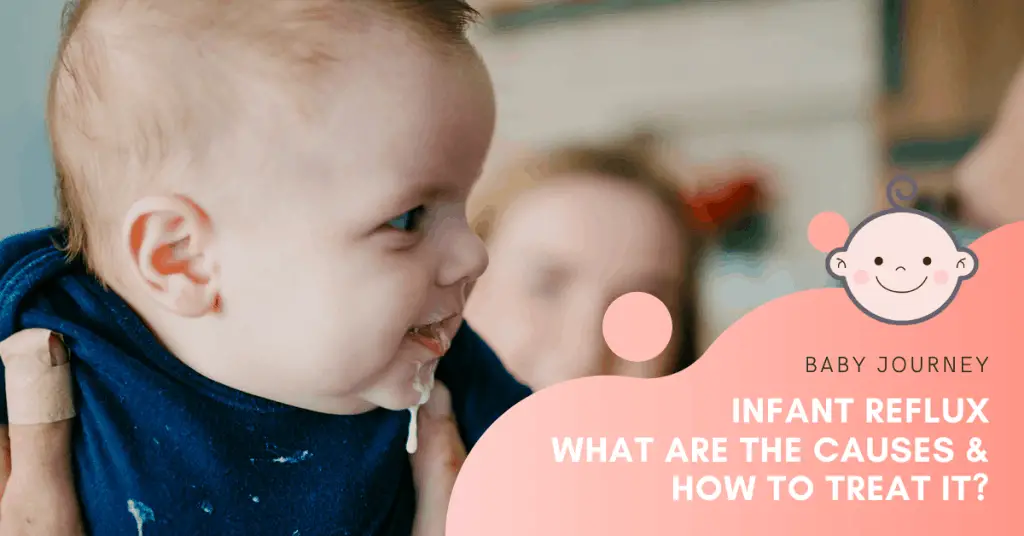Babies communicate in many ways, and one of the most surprising ways is through growling. While it may sound strange or even concerning, growling is a common aspect of baby communication that can signify various things. It might indicate hunger, discomfort, a desire to play, or simply a form of babble in response to the world around them.
Why is my baby growling? Parents may wonder why their baby is growling and what it means. Deciphering a baby’s sounds and noises can be challenging, but understanding growling can help parents better respond to their baby’s needs. In this article, we will explore the reasons why babies growl and how parents can respond to this unique form of communication. By gaining a better understanding of baby growling, parents can feel more confident in their ability to communicate with their little one and provide the care and attention they need.
- Understanding Baby Sounds
- Why Babies Growl
- Health Implications of Baby Growling
- Caring for a Growling Baby
- Baby Growling and Social Interaction
- Conclusion
- Frequently Asked Questions
- Is it normal for a baby to growl instead of babble?
- What are some reasons why a baby might make growling sounds?
- Can teething cause a baby to growl?
- Why does my 6-month-old baby make strange noises?
- What should I do if my baby keeps grunting and growling?
- Are growling sounds from a baby a sign of autism?
Understanding Baby Sounds
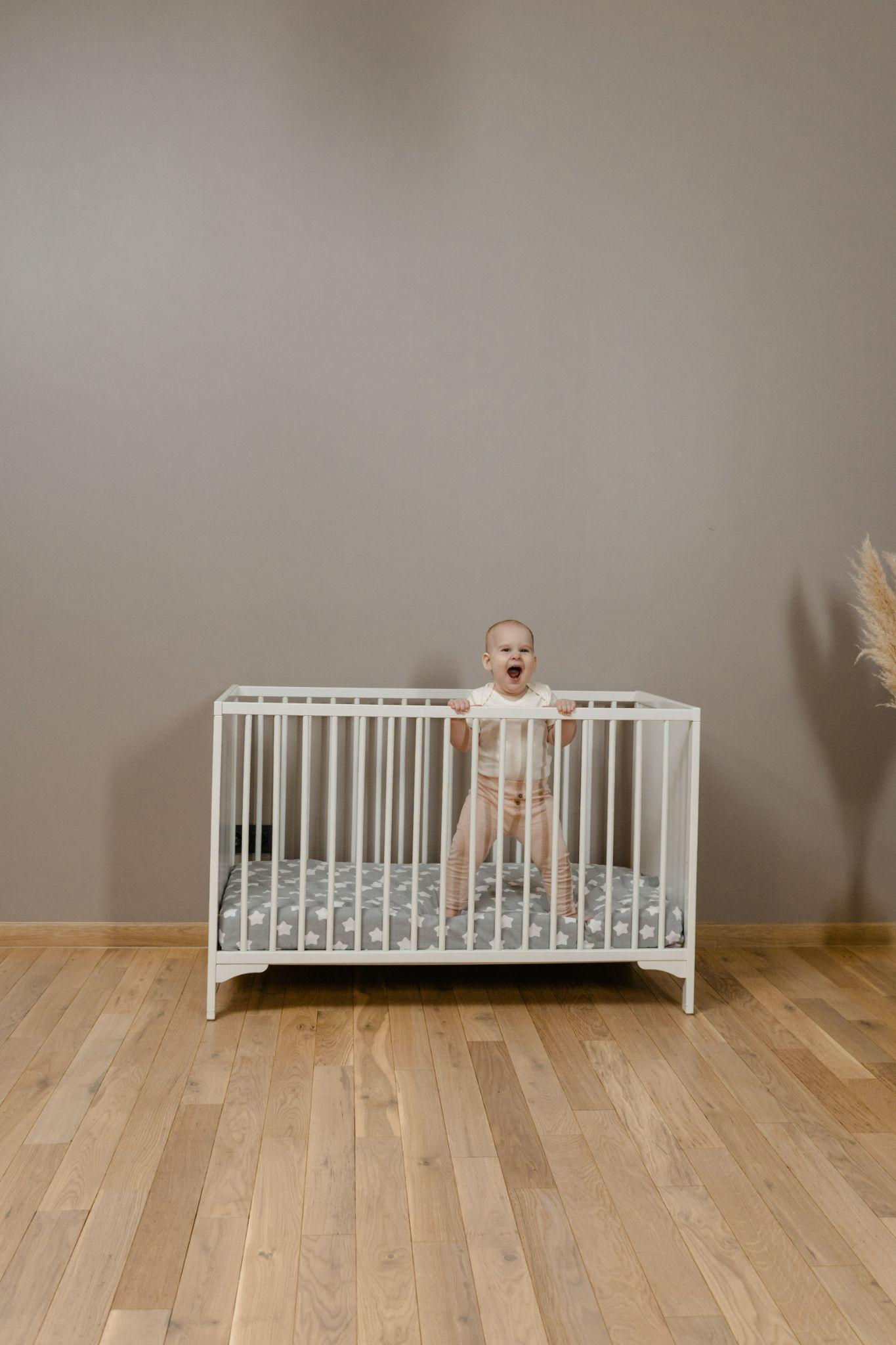
Babies make a variety of sounds, from coos and gurgles to growls and grunts. Understanding these sounds can be challenging, but it is an essential part of communicating with your baby. In this section, we will discuss the different types of sounds babies make, how they develop language, and the most common baby noises.
New Sounds Babies Make
Babies are born with the ability to make a limited range of sounds. As they grow, they develop the ability to produce new sounds, including babbling, growling, and squealing. These new sounds are an essential part of their language development and help them communicate with the world around them.
Language Development in Babies
Language development in babies is a complex process that begins at birth. Babies start by listening to the sounds around them and learning to distinguish between different types of sounds. As they grow, they begin to produce their own sounds, including coos, babbles, and eventually words.
Common Baby Noises
Babies make a variety of noises, some of which can be confusing or concerning for parents. Here are some of the most common baby noises and what they mean:
- Baby Grunts: Grunting is a normal sound for babies to make, especially during sleep. It is usually a sign that they are processing food or air and have nothing to worry about.
- Baby Squeals: Squealing is a common sound for babies to make when they are happy or excited. It is a sign that they are enjoying themselves and have nothing to worry about.
- Baby Panting Sounds: Panting is a normal sound for babies to make when they are excited or exerting themselves. It is a sign that they are breathing faster than usual and there is nothing to worry about.
- Baby Chuckles: Chuckling is a sign that your baby is happy and enjoying themselves. It is a normal part of their emotional development and is nothing to worry about.
- Baby Sighs: Sighing is a normal part of breathing for babies and is nothing to worry about.
Conclusion
Understanding baby sounds can be challenging, but it is an essential part of communicating with your baby. By learning the different types of sounds babies make, how they develop language, and the most common why makes baby noises, you can better understand your baby’s needs and help them communicate with the world around them.
Why Babies Growl

Why do babies growl? Babies make all kinds of noises, and growling is one of them. While it might seem strange or even alarming at first, growling is a common aspect of baby communication. In this section, we’ll explore some of the reasons why babies growl, including as a form of communication, a sign of discomfort, and a sign of frustration.
Growling as a Form of Communication
Growling can be a way for babies to communicate their needs. For example, a hungry baby might growl to indicate that they want to be fed. Similarly, a baby might growl to get attention or express excitement about a toy or object. In some cases, growling might simply be a way for babies to explore their vocal range and experiment with different noises.
Growling as a Sign of Discomfort
Sometimes, babies might growl as a sign of discomfort. For example, they might growl when they are experiencing pain or discomfort, such as from teething or an upset stomach. In these cases, it’s important to pay attention to other signs of discomfort, such as crying or fussiness, and address the underlying issue.
Growling as a Sign of Frustration
Babies might also growl as a sign of frustration. For example, they might growl when they are trying to reach for a toy that is just out of reach or when they are having trouble mastering a new skill. In these cases, growling might be a way for babies to express their frustration and try to get the help they need.
In general, growling is a completely normal part of baby development and communication. While it might seem strange or even alarming at first, it’s important to pay attention to other cues and use context to understand what your baby is trying to communicate. If you have concerns about your baby’s language skills or communication, it’s always a good idea to talk to your pediatrician.
Health Implications of Baby Growling
When babies growl, it can be a normal part of their development and communication. However, in some cases, it can also indicate potential health issues. In this section, we will explore some of the health implications of baby growling.
Digestive System and Growling
One possible reason why a baby might growl is due to the baby’s digestive system issues. If a baby is constipated or having trouble with bowel movements, they may grunt or strain, which can sound like growling. Additionally, if a baby has acid reflux, they may also make growling noises due to discomfort in their digestive system.
Parents should observe their baby’s diaper output and ensure that they are having regular bowel movements. If a baby seems to be struggling with digestion or is excessively gassy, it may be worth consulting with a pediatrician to rule out any underlying issues.
Respiratory System and Growling
Growling sounds can also be indicative of respiratory issues in babies. If a baby is having trouble breathing or has a respiratory infection, they may make growling noises as they struggle to breathe. Additionally, babies with certain respiratory conditions, such as bronchitis or asthma, may also make growling noises.
If a baby is experiencing breathing problems or has a fever, it is important to seek medical attention immediately. A pediatrician can help diagnose and treat any respiratory issues that may be causing growling sounds.
Possible Illnesses Indicated by Growling
In rare cases, growling sounds in babies can be a sign of a more serious underlying condition. For example, babies with certain genetic disorders, such as Cri du Chat syndrome, may growling due to abnormalities in their vocal cords.
If a baby’s growling sounds are accompanied by other symptoms, such as difficulty feeding or excessive crying, it is important to consult with a pediatrician. They can help diagnose any underlying conditions and provide appropriate treatment.
In summary, while growling sounds in babies can be a normal part of their development and communication, it is important to be aware of potential health implications. Parents should observe their baby’s behavior and seek medical attention if they have any concerns about their baby’s health.
Caring for a Growling Baby
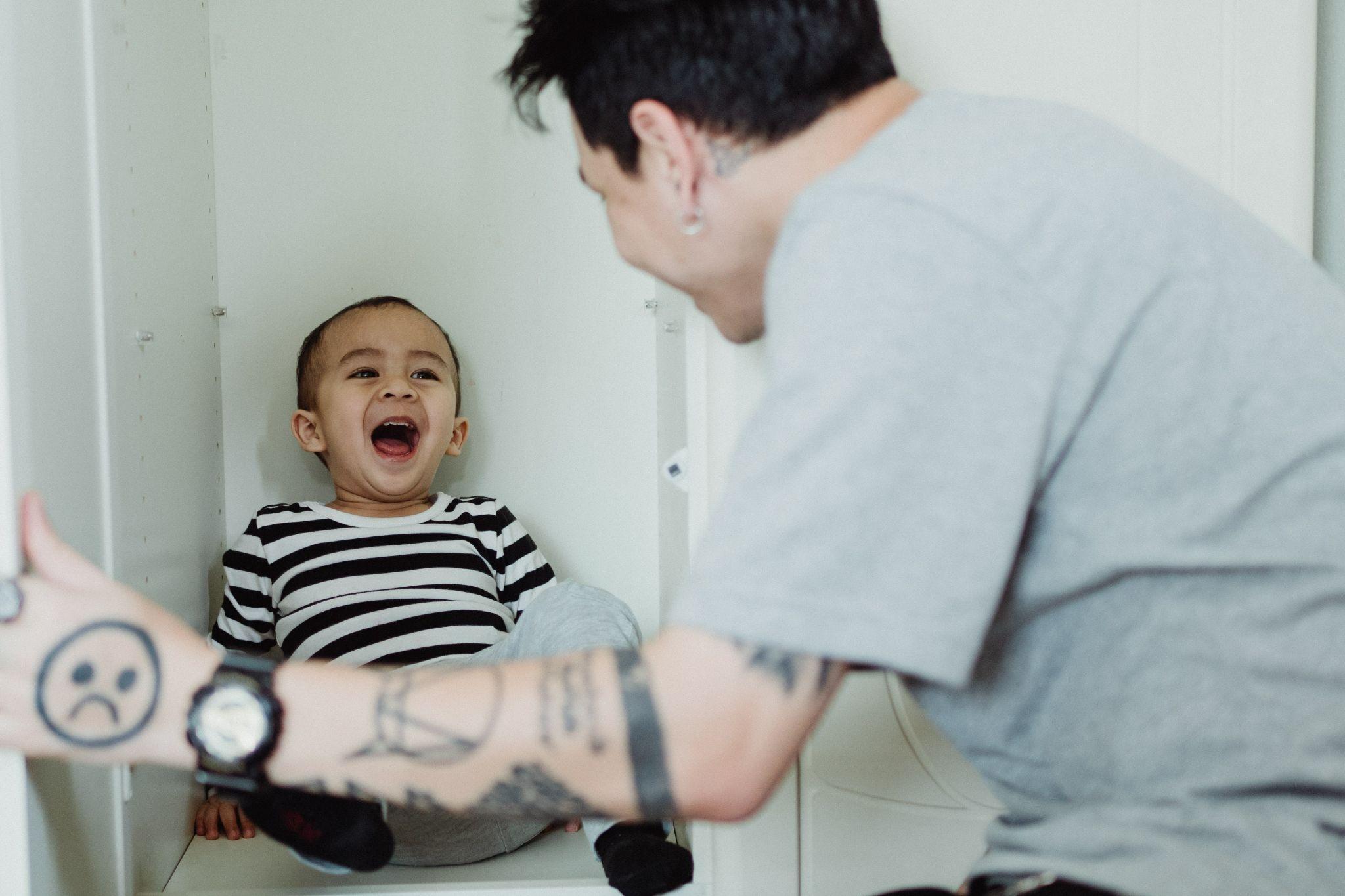
Babies communicate in many ways, and growling is one of them. As a new parent, it can be confusing and alarming to hear your baby growling. However, it is usually nothing to worry about and can be a sign of a healthy and developing baby. Here are some tips on how to care for a growling baby.
Comforting a Growling Baby
If your baby is growling, it could be a sign that they are in distress or uncomfortable. It’s important to try to comfort them. Here are some ways to provide comfort:
- Give your baby a hug or pat on the back.
- Rub their belly to help soothe them.
- Provide reassurance by saying “it’s okay” or “mommy/daddy is here.”
- Reduce stimulation by moving them to a quieter and less crowded area.
When to Consult a Pediatrician
While growling is usually normal and harmless, there are times when it could be a sign of an underlying medical condition. If your baby’s growling is accompanied by other symptoms such as fever, vomiting, or diarrhea, it’s important to consult a pediatrician. Additionally, if your baby is not gaining weight or seems to be in pain, it’s best to seek medical attention.
Understanding Your Baby’s Needs
Growling can be a sign that your baby is hungry, uncomfortable, or simply exploring their vocal range. It’s important to pay attention to your baby’s cues and try to understand their needs. Here are some things to keep in mind:
- If your baby is growling and seems hungry, offer them some milk or water.
- Check to see if your baby’s clothes or diaper are uncomfortable or need changing.
- Make sure your baby’s sleeping area or crib is comfortable and safe.
- As your baby grows and develops, they will begin to use words to communicate their needs.
In summary, growling is a normal part of baby communication and development. As a parent, it’s important to provide comfort and understand your baby’s needs. If you have any concerns about your baby’s growling, don’t hesitate to consult a pediatrician.
Baby Growling and Social Interaction

Babies use a variety of sounds to communicate with their caregivers and the world around them. One of these sounds is growling, which can be a source of confusion for many parents. However, growling is a common behavior among babies and can have various meanings, depending on the context.
Growling During Play
One reason why a baby might growl is during playtime. Growling is a way for babies to express their excitement and sense of humor. It can be a sign that they are having fun and enjoying the interaction with their caregivers or toys. Growling during playtime can also be a way for babies to practice their communication skills and learn how to interact with others.
Growling and Emotion Expression
Growling can also be a form of emotional expression for babies. It can be a sign of frustration, anger, or even aggression. If a baby is growling in a negative context, it is important for caregivers to pay attention to their behavior and try to identify the cause of their distress. It is also important to teach babies appropriate ways to express their emotions and communicate their needs.
Growling and Social Development
Growling can play an important role in a baby’s social development. It is a way for them to interact with others and learn how to communicate effectively. By responding to a baby’s growls, caregivers can help them develop their social skills and build a sense of trust and security. Growling can also be a way for babies to learn about cause and effect and how their actions can elicit a response from others.
In conclusion, growling is a normal behavior among babies and can have various meanings, depending on the context. It can be a sign of excitement, frustration, or even aggression. By paying attention to a baby’s behavior and responding appropriately, caregivers can help them develop their social skills and build a strong sense of trust and security.
Conclusion
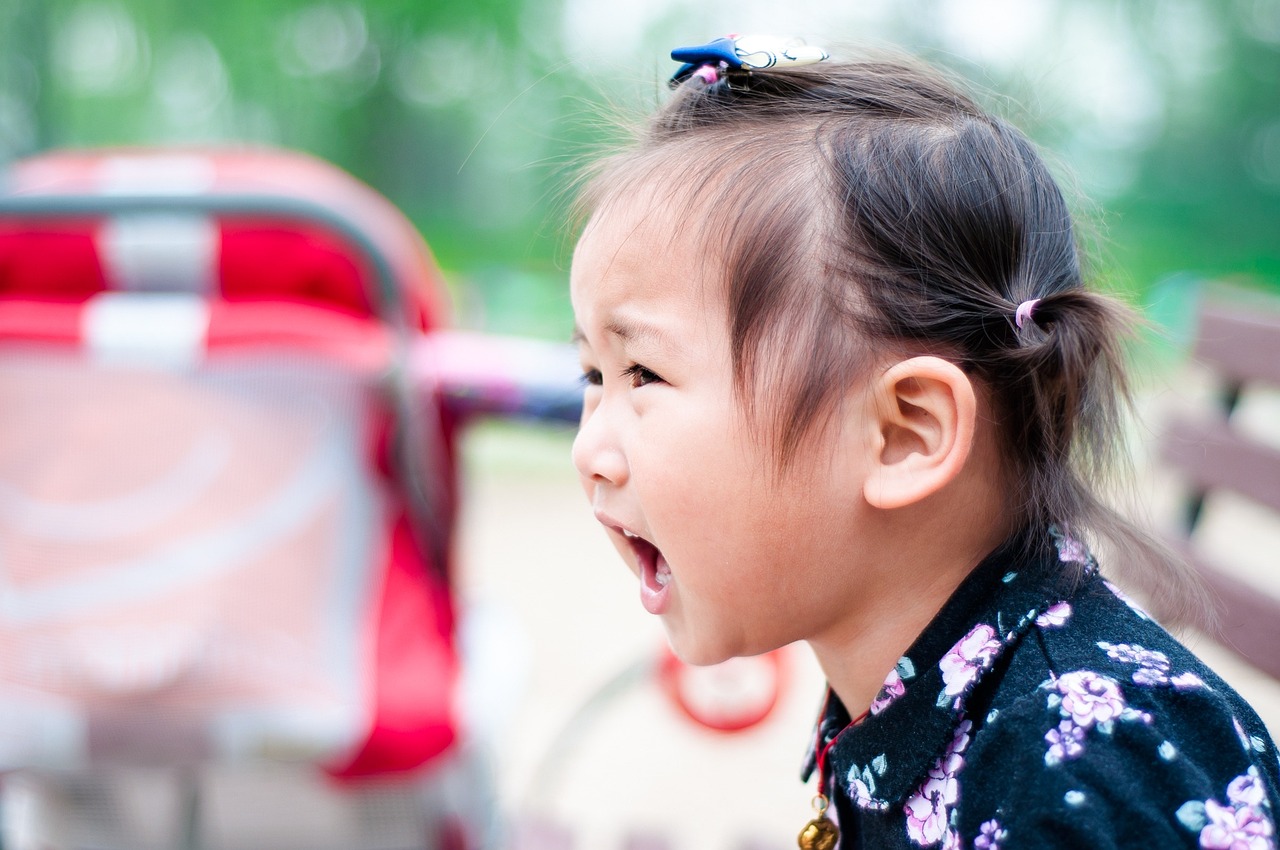
In conclusion, growling is a common aspect of baby communication. Babies growl for various reasons, including hunger, excitement, frustration, or just for fun. It is a way for them to explore their vocal range and experiment with different noises.
Parents should not be alarmed when their baby growls, as it is a harmless and natural part of their development. However, if the growling is accompanied by other symptoms, such as fever or difficulty breathing, it is important to seek medical attention.
Reducing stimulation in loud and overwhelming environments can help reduce growling. Parents can also respond positively to their baby’s growls by engaging in play and conversation, which can encourage further language development.
Understanding why babies growl and how to respond can help parents better communicate with their little ones and strengthen their bond. With patience and attention, parents can navigate this exciting phase of their baby’s development.
Frequently Asked Questions
Is it normal for a baby to growl instead of babble?
Yes, it is normal for a baby to growl instead of babble. It is a common aspect of baby communication and can signify various things, such as hunger or having fun playing with a toy. Sometimes it is simply the baby’s response to the world around them, a form of babble.
What are some reasons why a baby might make growling sounds?
Because they like the sensation it causes in their throats, babies may begin to purposely make growling noises. Growling can also serve as a form of communication, letting you know that the baby is engaged in whatever activity is taking place. It could also be a sign of contentment and comfort, often in response to something that has excited the baby.
Can teething cause a baby to growl?
Teething can cause a baby to growl, as it is a stressful and uncomfortable time for them. They may become irritable and restless, leading to growling sounds.
Why does my 6-month-old baby make strange noises?
At 6 months old, babies are still developing their communication skills and may make strange noises as they explore their vocal abilities. It is also possible that they are trying to communicate something to you, such as hunger or discomfort.
What should I do if my baby keeps grunting and growling?
If your baby keeps grunting and growling, it is important to pay attention to their behavior and try to understand what they are trying to communicate. Responding to their needs, such as feeding them or changing their diaper, can help alleviate any discomfort they may be experiencing.
Are growling sounds from a baby a sign of autism?
Growling sounds from a baby alone are not a sign of autism. However, if you are concerned about your baby’s development, it is important to talk to your pediatrician and have them evaluated. Early intervention is key for any developmental concerns.
